This is again a long newsletter but I invite you to skim through the headings that follow, in case there is a subject of particular interest to you at this time….
Dear Friends
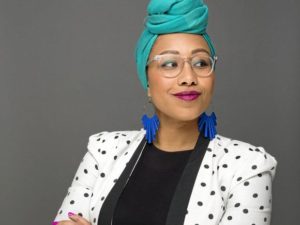 I was absolutely delighted to meet fellow awardee, Yassmin Abdel-Magied (photo), in 2014 at the Financial Review/ Westpac inaugural 100 Australian women of excellence ceremony. Yassmin is a Sudanese-Australian who moved to Brisbane when she was almost two years old, a mechanical engineer, author, activist, keynote speaker and part-time radio presenter. She hosted the Australia Wide television program on Saturday mornings on ABC News which was cancelled in May. Yassmin assisted in the establishment of Youth Without Borders, and has held membership in the Council for Multicultural Australia, the Federal ANZAC Centenary Commemoration Youth Working Group, the 2014 Youth G20 Summit, and the Council for Australian-Arab Relations. She was exactly the kind of Muslim that migrants in Australia are constantly told they need to be: a law-abiding citizen who worked hard and adapted to Australian life and mainstream values.
I was absolutely delighted to meet fellow awardee, Yassmin Abdel-Magied (photo), in 2014 at the Financial Review/ Westpac inaugural 100 Australian women of excellence ceremony. Yassmin is a Sudanese-Australian who moved to Brisbane when she was almost two years old, a mechanical engineer, author, activist, keynote speaker and part-time radio presenter. She hosted the Australia Wide television program on Saturday mornings on ABC News which was cancelled in May. Yassmin assisted in the establishment of Youth Without Borders, and has held membership in the Council for Multicultural Australia, the Federal ANZAC Centenary Commemoration Youth Working Group, the 2014 Youth G20 Summit, and the Council for Australian-Arab Relations. She was exactly the kind of Muslim that migrants in Australia are constantly told they need to be: a law-abiding citizen who worked hard and adapted to Australian life and mainstream values.
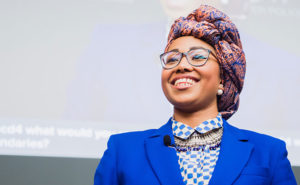 The bar is set extremely high for many immigrants, and still Yassmin cleared it by far. While Australia is undoubtedly one of most safe and sought-after places for migrants to settle, we still have issues. The most moderate, educated, and articulate young Australian-Muslims are not afraid to challenge some of the stereotypes about Muslims in Australia. Yassmin was unafraid to assert her identity on her own terms, and did not hesitate to critique some of our attitudes, leadership and institutions. For this she received hate mail and death threats. It is sad that we have lost this outstanding Australian to the United Kingdom.
The bar is set extremely high for many immigrants, and still Yassmin cleared it by far. While Australia is undoubtedly one of most safe and sought-after places for migrants to settle, we still have issues. The most moderate, educated, and articulate young Australian-Muslims are not afraid to challenge some of the stereotypes about Muslims in Australia. Yassmin was unafraid to assert her identity on her own terms, and did not hesitate to critique some of our attitudes, leadership and institutions. For this she received hate mail and death threats. It is sad that we have lost this outstanding Australian to the United Kingdom.
Garma Festival of Traditional Culture is an annual festival that is held in north-east Arnhem Land in the Northern Territory (NT). It is a celebration of the cultural inheritance of the Yolngu people and the aim is to share knowledge and culture and open people’s hearts to the message of the land at Gulkula, the festival site approximately 40 kms from Nhulunbuy. The festival attracts around 20 different cultural groups from Arnhem Land and the NT.
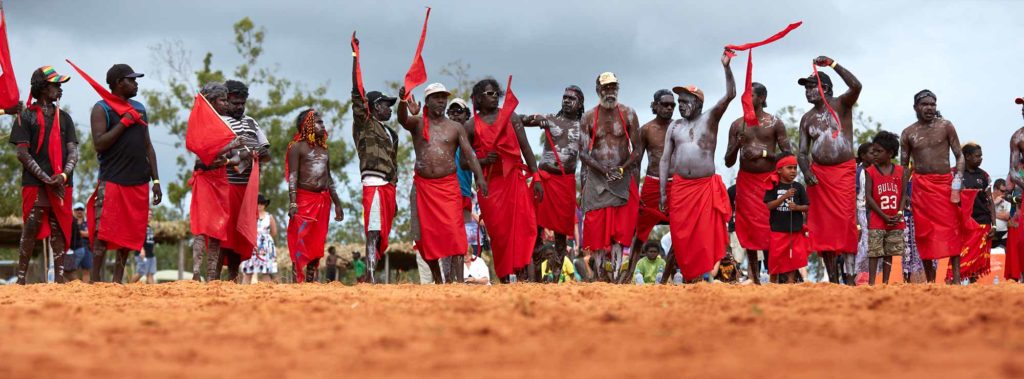
The first festival began in 1998 as a way of hosting an Aboriginal equivalent of the World Economic Forum. The site at Gulkula has profound meaning for Yolngu. Set in a stringybark forest with views to the Gulf of Carpentaria. Gulkula is where the ancestor Ganbulabula brought the didjeridu into being among the Gumatj people. The festival is designed to encourage the practice, preservation and maintenance of traditional dance, song, art and ceremony on Yolngu lands (photo). The Yothu Yindi Foundation aims to foster greater understanding between Indigenous and non-Indigenous Australians and develop economic opportunities for the Yolngu people. This includes access to education, employment, enterprise and remote Indigenous community development. Both the Prime Minister and the Leader of the Opposition attended but Aboriginal people were disappointed that there was no further strong commitment to implement the Uluru recommendations that I support. Makarrata is the process that would formally ensure the voices of Australia’s First Nations are included in our constitution, as outlined in the recent Uluru Statement from the Heart.
Asylum Seekers. The Australian government has reached a settlement with asylum seekers housed at the Manus Island detention centre, agreeing to compensate them $70 million for alleged human rights abuses endured by the residents. The settlement avoids what was expected to be a lengthy and expensive legal process, and it could amount to the largest human rights-related settlement in Australia’s history. Payments will be distributed among 1,900 people who sought asylum in Australia and instead found themselves confined to a detention centre where they complained they suffered degrading conditions, insufficient medical care and food, and abuse by security guards.
Unique Women of Minority Influence Conference. I will be presenting a case study on The Leadership of Minority Women in Rwanda at this transformational conference to understand the leadership of minority women in Australia and explore how organisations can advance diversity and inclusion. I am an Ambassador for the Australian Centre for Leadership for Women organising this conference that will be held on 27 September in Parliament House Sydney. The conference aims to advance an understanding of the leadership of women from minority groups in relation to its emergence, scope and power. Speakers will describe the challenges minority women face when accessing leadership opportunities, and emphasise the significance of advancing the paradigm for diversity and inclusion by recognising the rich leadership status and potential of minority women. Discussion will focus on how organisations can make visible the leadership of minority women and capitalise from their unique strengths.
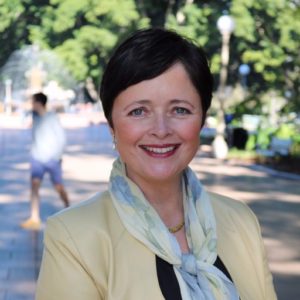 Minority groups discussed will be women with disabilities, LGTBIQ women, rural, regional and remote women, older women, indigenous, refugee, and culturally and linguistically diverse women. Hon Tanya Davies MP, NSW Minister for Mental Health, Minister for Women and Minister for Ageing (photo) will open the conference. Registration is available on www.leadershipforwomen.com.au
Minority groups discussed will be women with disabilities, LGTBIQ women, rural, regional and remote women, older women, indigenous, refugee, and culturally and linguistically diverse women. Hon Tanya Davies MP, NSW Minister for Mental Health, Minister for Women and Minister for Ageing (photo) will open the conference. Registration is available on www.leadershipforwomen.com.au
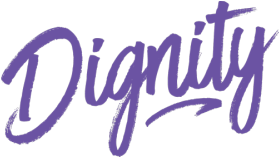 Dignity. Supporting people experiencing homelessness. I am quite delighted to have become an Ambassador for Dignity. Australia continues to see a rise in homelessness: there are 7000 on the homeless list in New South Wales (NSW) and some have been on the waiting list for two years. This is at the same time the new global #inequality index ranks Australia 14th. The richest 1% of Australians own more than the bottom 70% of the population. Dignity is providing essential food, shelter and clothing for up to 110 people experiencing homelessness every single night, preparing 3,500 meals a week with 637 beds available each week across 15 houses in the Southern Highlands, Campbelltown and the Northern Sydney Districts.
Dignity. Supporting people experiencing homelessness. I am quite delighted to have become an Ambassador for Dignity. Australia continues to see a rise in homelessness: there are 7000 on the homeless list in New South Wales (NSW) and some have been on the waiting list for two years. This is at the same time the new global #inequality index ranks Australia 14th. The richest 1% of Australians own more than the bottom 70% of the population. Dignity is providing essential food, shelter and clothing for up to 110 people experiencing homelessness every single night, preparing 3,500 meals a week with 637 beds available each week across 15 houses in the Southern Highlands, Campbelltown and the Northern Sydney Districts.
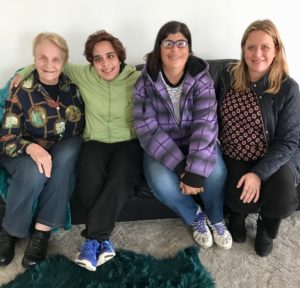 Dignity and RSPCA NSW have been awarded participation in the NSW Government Domestic and Family Violence Innovation Fund. Up to 40% of women who are considering leaving a violent relationship will not do so if it means leaving a pet with the abusive partner. Dignity now have several sites that take in domestic animals under supervised care from veterinarians and volunteers, and achieve permanent pet-friendly rentals when they move on. I had the opportunity to spend a day with CEO Suzanne Hopman visiting the Dignity food distribution centre and two of their 15 emergency homes for homeless people in Campbelltown. The photo is with two Aboriginal guests in one of the homes reserved for women. The Dignity Dishes team has cooked over 10,000 meals this year from food donated by Oz Harvest. Winter can be a brutal time for people who have to flee their home with nothing other than the clothes they are wearing, so the coats donated to the Winter Coat Appeal have been warmly welcomed. There is a wide variety of events that supporters arrange for Dignity, including fund-raising lunches and corporate volunteering days, for example a Westpac team of nine people who made 110 clothing packs for Dignity’s guests: 100% of the funds raised and goods donated go directly to the people Dignity supports. If these ideas inspire you to arrange a Dignity event, we would love to hear from you http://www.dignity.org.au
Dignity and RSPCA NSW have been awarded participation in the NSW Government Domestic and Family Violence Innovation Fund. Up to 40% of women who are considering leaving a violent relationship will not do so if it means leaving a pet with the abusive partner. Dignity now have several sites that take in domestic animals under supervised care from veterinarians and volunteers, and achieve permanent pet-friendly rentals when they move on. I had the opportunity to spend a day with CEO Suzanne Hopman visiting the Dignity food distribution centre and two of their 15 emergency homes for homeless people in Campbelltown. The photo is with two Aboriginal guests in one of the homes reserved for women. The Dignity Dishes team has cooked over 10,000 meals this year from food donated by Oz Harvest. Winter can be a brutal time for people who have to flee their home with nothing other than the clothes they are wearing, so the coats donated to the Winter Coat Appeal have been warmly welcomed. There is a wide variety of events that supporters arrange for Dignity, including fund-raising lunches and corporate volunteering days, for example a Westpac team of nine people who made 110 clothing packs for Dignity’s guests: 100% of the funds raised and goods donated go directly to the people Dignity supports. If these ideas inspire you to arrange a Dignity event, we would love to hear from you http://www.dignity.org.au
Cuba. I do want to take advantage of being able to travel while I am fit and well, and while my limited retirement funds can just manage to cover the travel expenses. An Inuit friend who had been with me in Rwanda and visited me in Sydney has been asking me for years to accompany her to Cuba where she has lived and worked before, and at last I had an opportunity. What a wonderful time TJ and I had there, meeting her friends and visiting key sights, including a three-day car journey to Trinidad, a UNESCO World Heritage Site, built on the back of the 19th-century sugar and slave trade and a perfectly preserved Spanish colonial settlement. A day bus journey to Viñales, was a great combination of natural beauty and traditional Cuban culture. I visited a tobacco farm there and the distinctive limestone hills reminded me of the Bungle Bungles in Western Australia (WA), of course not red rock but covered with lush green vegetation. The ubiquitous hop-on hop-off bus took us around to key places of interest, including the University of Havana where I visited gender studies academics. I was particularly impressed with the blue mural by famous Cuban artist Amelia Peláez on the wall of Hotel Tryp Habana Libre, the headquarters of Fidel Castro when he returned to Havana in 1959.
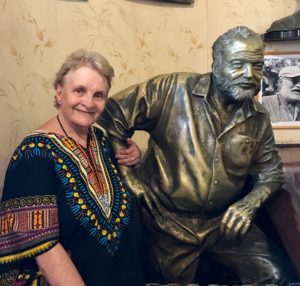
I also spent some time visiting the Cuba home of Ernest Hemingway, Finca Vigia, in a modest fishing village, where he wrote The Old Man and The Sea that I enjoyed studying in an English Literature class at the University of WA in 1958. I stopped at the Ernest Hemingway bar he frequented (photo) , to have a daiquiri, his favourite cocktail of rum and lime juice. Everywhere there was music – in every restaurant, bar, on the streets. No longer hampered by the bipolar world of the Cold War, Cuba’s diplomatic efforts have come a long way.
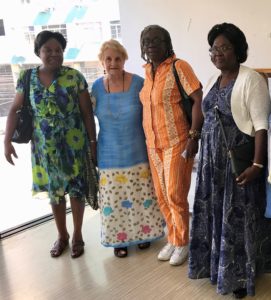 Brazil. After Cuba I also had the wonderful opportunity of visiting Rio de Janeiro and Florianopolis in Brazil to deliver Conference papers, my first time in South America calling briefly in to Santiago Chile, Lima Peru, Bogota Colombia and Sao Paolo on the way. The 6th Women Leading Education Across Continents Conference, was organised by staff of the University of Duque de Caxias, a city on Guanabara Bay in Rio de Janeiro state. I had presented at the 5th WEL biennial conference in New Zealand (NZ) on issues affecting women in Rwanda but this time spoke as Ambassador for the International Cricket League on Case Studies on Women Leaders in Sports Education in the Pacific. It was great to catch up with friends I met in NZ and have been corresponding with for years, all of whom are making a significant difference to teaching and learning in their institutions. The African delegates were from Uganda, Ghana and Kenya (photo) and I was able to connect them to a possible collaboration with the University of Newcastle in Australia where I am now a conjoint professor of practice in the school of education. I had time for a little sightseeing, visiting Christ the Redeemer and other places. Sadly a computer crash meant a day getting to and from the Apple Store in the city to have most of my data restored – thank goodness for iCloud as my hard drive had disappeared between Havana and Rio de Janeiro.
Brazil. After Cuba I also had the wonderful opportunity of visiting Rio de Janeiro and Florianopolis in Brazil to deliver Conference papers, my first time in South America calling briefly in to Santiago Chile, Lima Peru, Bogota Colombia and Sao Paolo on the way. The 6th Women Leading Education Across Continents Conference, was organised by staff of the University of Duque de Caxias, a city on Guanabara Bay in Rio de Janeiro state. I had presented at the 5th WEL biennial conference in New Zealand (NZ) on issues affecting women in Rwanda but this time spoke as Ambassador for the International Cricket League on Case Studies on Women Leaders in Sports Education in the Pacific. It was great to catch up with friends I met in NZ and have been corresponding with for years, all of whom are making a significant difference to teaching and learning in their institutions. The African delegates were from Uganda, Ghana and Kenya (photo) and I was able to connect them to a possible collaboration with the University of Newcastle in Australia where I am now a conjoint professor of practice in the school of education. I had time for a little sightseeing, visiting Christ the Redeemer and other places. Sadly a computer crash meant a day getting to and from the Apple Store in the city to have most of my data restored – thank goodness for iCloud as my hard drive had disappeared between Havana and Rio de Janeiro.
13th Women’s Worlds Congress, Florianopolis.
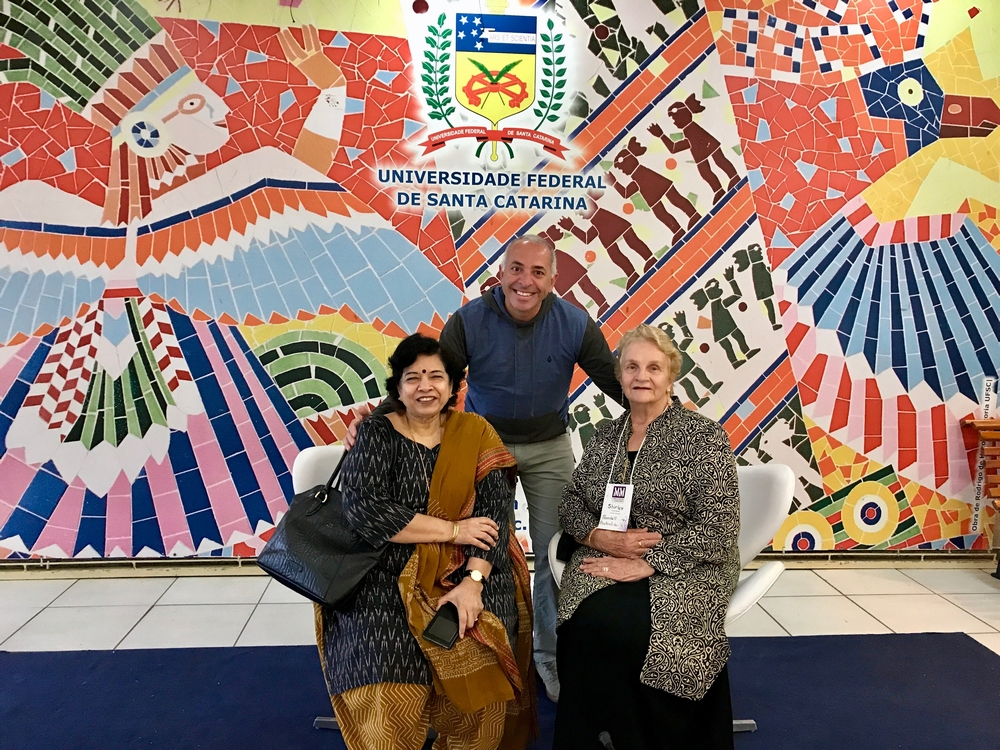
This was the fourth WW triennial congress I have presented papers to: Montreal Canada, Madrid Spain, Hyderabad India and now Florianopolis Brazil. The congress was held at the Federal University of Santa Catalina and was a coming together of 8,500 academicians, activists, government officials and civil society organisations, mostly from South America. I spoke at the opening plenary on Empowering Women and Girls through Sport. The vast majority of participants were Portuguese or Spanish speaking and there was very little English this time. The facilitating university students in Brazil like anywhere else in the world were wonderful and those that did the translations for us did an excellent job and made us feel connected. I was delighted to be met and hosted over the five days by a PhD scholar Mauricio Pereira Gomes who accompanied me and my friend Professor Rekha Pande (photo) organiser of the Hyderabad congress. After we made our presentations we were able to enjoy travelling around the island. I had a magnificent room in a very simple hotel – Edelweiss – with a balcony overlooking the south sea, stunning views every day. The new team of Mozambique women leaders who will hold the Congress in 2020 spoke enthusiastically to welcome our ongoing participation.
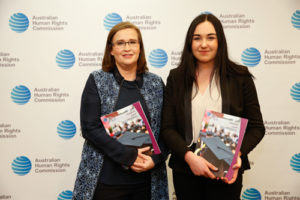 Violence Against Women. There has been extensive media coverage of the Australian Human Rights Commission’s (HRC) Change the Course report released by Sophie Johnston, President of the National Union of Students and Kate Jenkins, Sex Discrimination Commissioner (photo). The results of a national survey of 39 universities and more than 30,000 students has had an encouraging swift reaction from the universities. Statistics show that our universities have failed students on sexual harassment and sexual assault, potentially contributing to a flow-on effect in our workplaces. If you can get away with sexual violence and assault at one of our most esteemed academic institutions, why not in your first graduate position, and then later in your leadership career?
Violence Against Women. There has been extensive media coverage of the Australian Human Rights Commission’s (HRC) Change the Course report released by Sophie Johnston, President of the National Union of Students and Kate Jenkins, Sex Discrimination Commissioner (photo). The results of a national survey of 39 universities and more than 30,000 students has had an encouraging swift reaction from the universities. Statistics show that our universities have failed students on sexual harassment and sexual assault, potentially contributing to a flow-on effect in our workplaces. If you can get away with sexual violence and assault at one of our most esteemed academic institutions, why not in your first graduate position, and then later in your leadership career?
There are disturbingly high incidents, with one in five students being sexually harassed at a university setting in the past year (rising to 26% if you include travel to and from campus) and 50% in a general setting. Nearly 7% of students say they have been sexually assaulted in the past two years, with 1.6% of students saying this was in a university setting. Women were twice as likely as men to be harassed, three times as likely to be assaulted, and men were the overwhelming perpetrators of both the harassment and assault. Just 9% of students who experienced sexual assault in a university setting made a complaint to their university. The HRC has recommended universities widely disseminate information regarding reporting avenues, as well as details on support, counselling and medical services.
Let us hope this report and the conversation it has generated are the start of a widespread culture change in Australia, similar to the effects of the recent reports on family violence and child sex abuse.
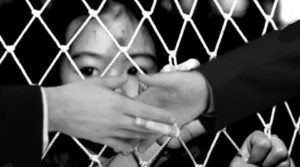 Human Trafficking in Persons. International conventions condemn trafficking in persons as a grave violation of human rights. The purposes of trafficking include sexual slavery, commercial sexual exploitation, forced labor, servitude, forced marriage, and removal of organs. Every country in the world is affected by human trafficking and children make up almost a third of all trafficking victims worldwide. Women and girls comprise 71 per cent of human trafficking. In 2010, the UN General Assembly adopted the Global Plan of Action to Combat Trafficking in Persons, urging Governments worldwide to take coordinated and consistent measures to defeat this crime. In 2013, July 30 was designated as the World Day against Trafficking in Persons to ‘raise awareness of the situation of victims of human trafficking and for the promotion and protection of their rights.’ The 2030 Sustainable Development Agenda embraces goals and targets on trafficking in persons. These goals call for an end to trafficking and violence against children, as well as the need for measures against human trafficking, and they strive for the elimination of all forms of violence against and exploitation of women. Trafficking in persons constitutes an offence and a serious threat to human dignity and physical integrity, human rights, and development. Despite sustained measures taken at the international, regional, and national levels, trafficking remains a grave challenge facing the international community. It impairs the enjoyment of human rights and needs a more concerted international response.
Human Trafficking in Persons. International conventions condemn trafficking in persons as a grave violation of human rights. The purposes of trafficking include sexual slavery, commercial sexual exploitation, forced labor, servitude, forced marriage, and removal of organs. Every country in the world is affected by human trafficking and children make up almost a third of all trafficking victims worldwide. Women and girls comprise 71 per cent of human trafficking. In 2010, the UN General Assembly adopted the Global Plan of Action to Combat Trafficking in Persons, urging Governments worldwide to take coordinated and consistent measures to defeat this crime. In 2013, July 30 was designated as the World Day against Trafficking in Persons to ‘raise awareness of the situation of victims of human trafficking and for the promotion and protection of their rights.’ The 2030 Sustainable Development Agenda embraces goals and targets on trafficking in persons. These goals call for an end to trafficking and violence against children, as well as the need for measures against human trafficking, and they strive for the elimination of all forms of violence against and exploitation of women. Trafficking in persons constitutes an offence and a serious threat to human dignity and physical integrity, human rights, and development. Despite sustained measures taken at the international, regional, and national levels, trafficking remains a grave challenge facing the international community. It impairs the enjoyment of human rights and needs a more concerted international response.
Women Entrepreneurs Finance Initiative (We-Fi).
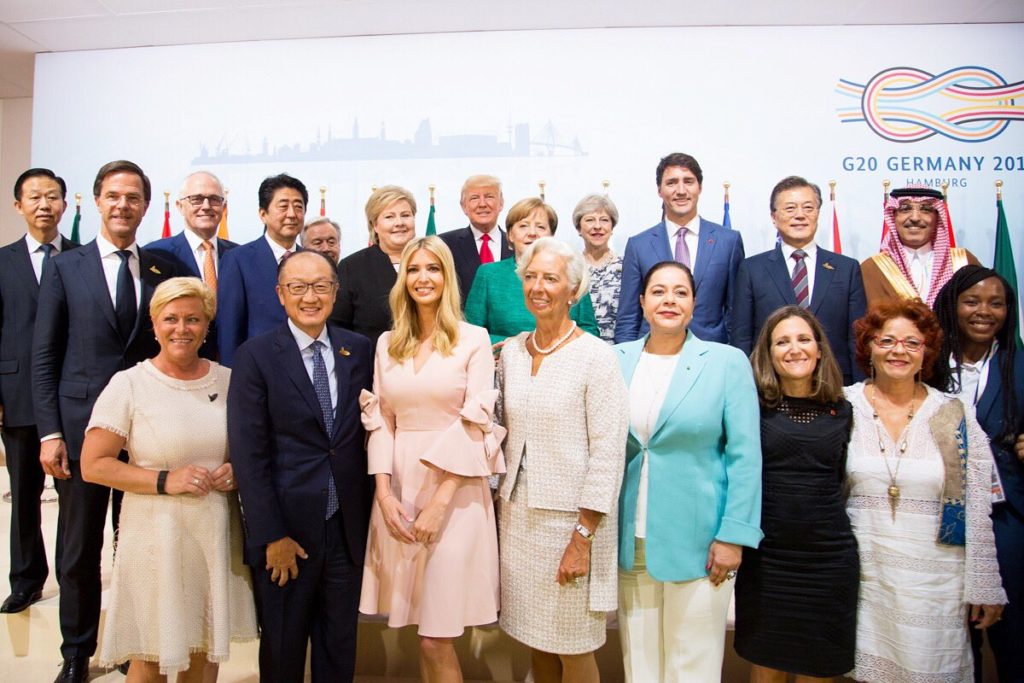
A coalition of G20 states and the World Bank (WB) launched a new Financial Intermediary Fund at the bank that aims to leverage up to US$1 billion (AUD$1.3 billion) to support female entrepreneurs. Leaders from the US, Australia, the UK, Canada, Japan and Saudi Arabia attended the launch with German Chancellor Angela Merkel. The US announced it would support We-FI, which has been pushed by Ivanka Trump, Adviser to President Donald Trump, with a $50 million pledge. Ms Trump is a champion of We-FI, who helped initiate the idea for the facility, and has been a strong advocate for the issue of women’s entrepreneurship. We-Fi is the first WB-led facility to advance women’s entrepreneurship at scale in developing countries. It will work to enable more than US$1 billion to improve access to capital, provide technical assistance, and invest in other projects and programs that support women and women-led small and medium enterprises in WB client countries. The US is joined in supporting the fund by Saudi Arabia, United Arab Emirates and Germany (USD50m each), Norway (USD11m), and Denmark, Australia and Canada (USD10m each). G20 identified the structural barriers facing women entrepreneurs, who represent just over 30 per cent of formal, registered businesses worldwide. It recommended support for women entrepreneurs and female cooperatives to start-up and scale their operations, build capacity, ensure their equal access to finance and markets, and accord them their fair share in global value chains.
Bereavements.
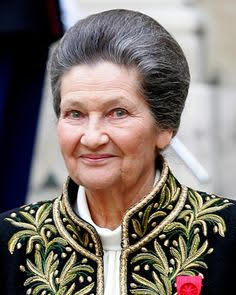 France has lost one of its famous and respected citizens, Simone Veil (photo) who inspired admiration in generations of French people, regardless of their political leanings. Her dignity, strength and beauty made her a French symbol, now resting at the Paris Panthéon alongside Victor Hugo, Marie Curie, Zola, Voltaire and Rousseau. Veil, a survivor of Auschwitz who lost both her parents and a brother in the hell of the camps, always spoke softly yet forcefully about the war’s darkest hours. However, she did not let it define her. She studied, worked and was an independent woman, as her mother had urged her before dying of typhus in March 1945. Her experience in Auschwitz profoundly informed her love for the European project and its construction, with, at its heart, the reconciliation with Germany. The moment of her election as the first president of the European parliament in 1979 was intense with restrained emotion. A few years earlier, Veil had led a legal battle in the French parliament, defending women’s right to abortion on humanitarian grounds. Fatima Ahmed Ibrahim, a fiery activist who became the first female MP in Sudan has also died. She was elected in 1965 and was one of the first female parliamentarians in Africa. Fatima campaigned tirelessly for women’s rights to consent to marriage, vote, work and enjoy equal pay, plus the abolition of laws obliging abused wives to return to their violent husbands. She edited a pioneering magazine for women and co-founded the Sudanese Women’s Union.
France has lost one of its famous and respected citizens, Simone Veil (photo) who inspired admiration in generations of French people, regardless of their political leanings. Her dignity, strength and beauty made her a French symbol, now resting at the Paris Panthéon alongside Victor Hugo, Marie Curie, Zola, Voltaire and Rousseau. Veil, a survivor of Auschwitz who lost both her parents and a brother in the hell of the camps, always spoke softly yet forcefully about the war’s darkest hours. However, she did not let it define her. She studied, worked and was an independent woman, as her mother had urged her before dying of typhus in March 1945. Her experience in Auschwitz profoundly informed her love for the European project and its construction, with, at its heart, the reconciliation with Germany. The moment of her election as the first president of the European parliament in 1979 was intense with restrained emotion. A few years earlier, Veil had led a legal battle in the French parliament, defending women’s right to abortion on humanitarian grounds. Fatima Ahmed Ibrahim, a fiery activist who became the first female MP in Sudan has also died. She was elected in 1965 and was one of the first female parliamentarians in Africa. Fatima campaigned tirelessly for women’s rights to consent to marriage, vote, work and enjoy equal pay, plus the abolition of laws obliging abused wives to return to their violent husbands. She edited a pioneering magazine for women and co-founded the Sudanese Women’s Union.
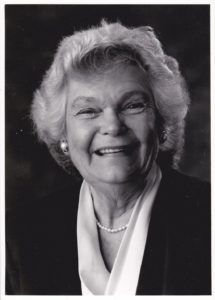 Vale Pat Giles AM, aged 88. From her early work as a midwife, Pat Giles (photo) dedicated her life to creating a better world for women. She was a leader of the women’s rights movement, a trade unionist and a founding member and inaugural convenor of the Women’s Electoral Lobby in WA in 1973. The first woman on the executive of the WA Trades and Labor Council, Pat was elected as an ALP senator in 1980 and held the position until 1993. She led international delegations, was inaugural president of the World Women Parliamentarians for Peace and chaired the UN Global Commission on Women’s Health. Pat was a generous mentor to many young women interested in politics and to Canberra public servants like me in the 1970s. Her work as a senator took her from helping to establish women’s refuges in the northern suburbs, to supporting the Women’s Peace Camp in Canberra, to leading Australia’s delegation to the United Nations. Pat was much loved and highly respected by women right across Australia as a women’s activist and passionate campaigner for a fair and equitable community.
Vale Pat Giles AM, aged 88. From her early work as a midwife, Pat Giles (photo) dedicated her life to creating a better world for women. She was a leader of the women’s rights movement, a trade unionist and a founding member and inaugural convenor of the Women’s Electoral Lobby in WA in 1973. The first woman on the executive of the WA Trades and Labor Council, Pat was elected as an ALP senator in 1980 and held the position until 1993. She led international delegations, was inaugural president of the World Women Parliamentarians for Peace and chaired the UN Global Commission on Women’s Health. Pat was a generous mentor to many young women interested in politics and to Canberra public servants like me in the 1970s. Her work as a senator took her from helping to establish women’s refuges in the northern suburbs, to supporting the Women’s Peace Camp in Canberra, to leading Australia’s delegation to the United Nations. Pat was much loved and highly respected by women right across Australia as a women’s activist and passionate campaigner for a fair and equitable community.
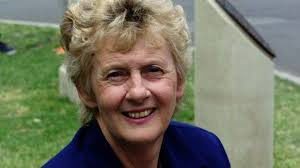 Another loss to Australia was Betty Cuthbert (photo) at the age of 79 after a long battle with multiple sclerosis. Australia’s “golden girl” of athletics was the only athlete to win Olympic gold medals at 100m, 200m and 400m and was a great inspiration to elite athletes like Raylene Boyle and Cathy Freeman and the generations of Australian track and field athletes who followed in the wake of her illustrious career where she set 16 world records in individual and relay events.
Another loss to Australia was Betty Cuthbert (photo) at the age of 79 after a long battle with multiple sclerosis. Australia’s “golden girl” of athletics was the only athlete to win Olympic gold medals at 100m, 200m and 400m and was a great inspiration to elite athletes like Raylene Boyle and Cathy Freeman and the generations of Australian track and field athletes who followed in the wake of her illustrious career where she set 16 world records in individual and relay events.
Now for my usual round up of other news of women from around the world.
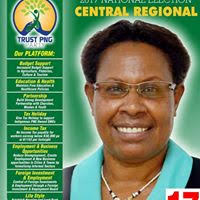 Papua New Guinea (PNG). Not one women was elected to the new 111-member PNG Parliament and for the first time in 25 years (since the 1992 election) no woman is in the 2017 Parliament. This outcome was despite more female candidates being nominated for elections than ever before; 167 of 3,332 candidates were women. PNG is now one of only five countries in the world that have no female members of parliament (alongside Yemen, Qatar, Micronesia and Vanuatu) with the global average being 23 per cent female representation. Since independence and after nine national elections, only seven women have been elected to Parliament in PNG. Despite challenges, many women achieved positive results – including Rufina Peter (photo) in Central Regional Seat who was the highest polling female candidate with 33,221 votes, placing third. Chief Ombudsman, Michael Dick commended those women who stood against all odds to represent their provinces and regions: “Many worked in difficult circumstances with few resources to challenge strong traditional and customary norms. Evidence shows that when we engage women in political leadership it has positive flow-on effects – from improved livelihoods to increased economic growth and reduction in corruption”.
Papua New Guinea (PNG). Not one women was elected to the new 111-member PNG Parliament and for the first time in 25 years (since the 1992 election) no woman is in the 2017 Parliament. This outcome was despite more female candidates being nominated for elections than ever before; 167 of 3,332 candidates were women. PNG is now one of only five countries in the world that have no female members of parliament (alongside Yemen, Qatar, Micronesia and Vanuatu) with the global average being 23 per cent female representation. Since independence and after nine national elections, only seven women have been elected to Parliament in PNG. Despite challenges, many women achieved positive results – including Rufina Peter (photo) in Central Regional Seat who was the highest polling female candidate with 33,221 votes, placing third. Chief Ombudsman, Michael Dick commended those women who stood against all odds to represent their provinces and regions: “Many worked in difficult circumstances with few resources to challenge strong traditional and customary norms. Evidence shows that when we engage women in political leadership it has positive flow-on effects – from improved livelihoods to increased economic growth and reduction in corruption”.
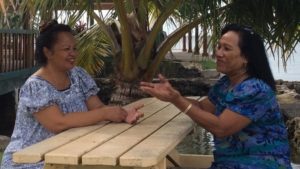
Federated States of Micronesia (FSM). Growing numbers of women may be taking their places in political life around the world (of the 577 newly elected lawmakers in France, 223 are female, beating the previous record of 155 set after the last election) but women in politics are a rarity in the Pacific. They were non-existent in Chuuk in the Federated States of Micronesia (FSM) where women make up only 6% of MPs in national parliaments. The view that politics is for men is pervasive in the FSM and the wider region, and in 2017 there was not a single female member in the FSM national legislature, and only one in all of the four state bodies. For the first time in its history, Chuuk province will now have a woman in the state senate. Gardenia Aisek says that speaking to voters face-to-face about her vision for change made all the difference. She and Cindy Mori (photo) both stood for election on a platform for promoting gender equity across the board, tackling rampant domestic violence and rape, improving education, hospital and health services, promoting economic development and addressing climate change.
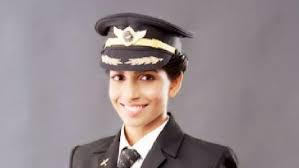 India. An Indian woman has overcome the misgivings of her local community to become the youngest female commander of a Boeing 777 aircraft in the world. Anny Divya (photo) took command of a 777, the world’s largest twin jet, at the age of 30, proving wrong those who had tried to convince her parents it was not a viable career option. “Luckily my parents have been very supportive, even though a lot of people were telling them not to send me for flying lessons…There was a lot of resistance all round – especially the fees, which were a lot for [my parents] to pay at the time,” she said.
India. An Indian woman has overcome the misgivings of her local community to become the youngest female commander of a Boeing 777 aircraft in the world. Anny Divya (photo) took command of a 777, the world’s largest twin jet, at the age of 30, proving wrong those who had tried to convince her parents it was not a viable career option. “Luckily my parents have been very supportive, even though a lot of people were telling them not to send me for flying lessons…There was a lot of resistance all round – especially the fees, which were a lot for [my parents] to pay at the time,” she said.
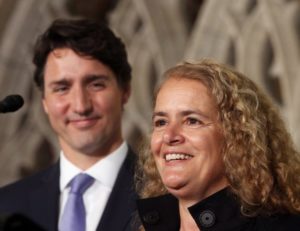
Canada. The 53-year-old Julie Payette (photo) who speaks six languages and is also an accomplished athlete, pianist and choral singer, has been named the 29th governor general of Canada. A computer engineer with a commercial pilot licence, Payette was picked from among 5,330 applicants in 1992 to be one of four new astronauts with the Canadian Space Agency (CSA). Payette is active on a number of causes and has served as a board member for Drug Free Kids Canada as well as being a National Champion of the Trans Canada Trail. She participated in two space flights to the International Space Station and served as the CSA’s chief astronaut between 2000 and 2007.
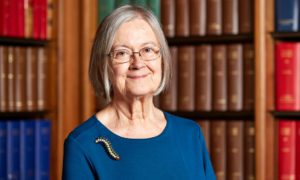 United Kingdom. Brenda Hale (photo) is to become first female president of supreme court. Lady Hale, who has campaigned for greater diversity in the judiciary, joins three other supreme court posts, one of them a woman, taking the female tally among the 12 supreme court justices to two. Hale has said, “Excellence is important but so is diversity of expertise.” In 2015, this family law expert said the supreme court should be ashamed if it does not radically improve its diversity and that recruitment of black and Asian judges is too slow. She previously criticised the inbuilt bias in choosing judges, and the dependence on soundings from judges, which produced a judiciary that is “not only mainly male, overwhelmingly white, but also largely the product of a limited range of educational institutions and social backgrounds”.
United Kingdom. Brenda Hale (photo) is to become first female president of supreme court. Lady Hale, who has campaigned for greater diversity in the judiciary, joins three other supreme court posts, one of them a woman, taking the female tally among the 12 supreme court justices to two. Hale has said, “Excellence is important but so is diversity of expertise.” In 2015, this family law expert said the supreme court should be ashamed if it does not radically improve its diversity and that recruitment of black and Asian judges is too slow. She previously criticised the inbuilt bias in choosing judges, and the dependence on soundings from judges, which produced a judiciary that is “not only mainly male, overwhelmingly white, but also largely the product of a limited range of educational institutions and social backgrounds”.
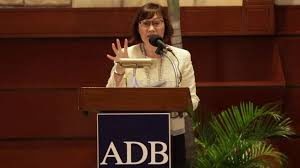 Philippines. The Asian Development Bank has appointed its first woman as the new Director General for its Pacific Department. Ma Carmela Locsin (photo) will head the implementation of the Pacific Approach 2016-2020, which prioritises the bank’s assistance to help reduce the cost of doing business, manages risks of climate change and economic shocks and creates a more enabling environment for the private sector. The Pacific Approach serves as ADB’s overall country partnership strategy for the Cook Islands, Kiribati, the Republic of the Marshall Islands, FSM, Nauru, Palau, Samoa, the Solomon Islands, Tonga, Tuvalu, and Vanuatu. It also has individual partnership strategies for the three larger Pacific developing member countries – Fiji, Papua New Guinea, and Timor-Leste.
Philippines. The Asian Development Bank has appointed its first woman as the new Director General for its Pacific Department. Ma Carmela Locsin (photo) will head the implementation of the Pacific Approach 2016-2020, which prioritises the bank’s assistance to help reduce the cost of doing business, manages risks of climate change and economic shocks and creates a more enabling environment for the private sector. The Pacific Approach serves as ADB’s overall country partnership strategy for the Cook Islands, Kiribati, the Republic of the Marshall Islands, FSM, Nauru, Palau, Samoa, the Solomon Islands, Tonga, Tuvalu, and Vanuatu. It also has individual partnership strategies for the three larger Pacific developing member countries – Fiji, Papua New Guinea, and Timor-Leste.
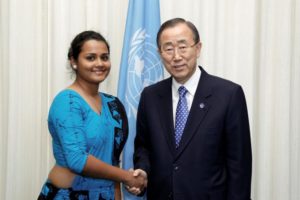 Sri Lanka. United Nations Secretary-General António Guterres has appointed Jayathma Wickramanayake (photo) of Sri Lanka as his next Envoy on Youth. She succeeded Ahmad Alhendawi of Jordan The success of the 2030 Agenda for Sustainable Development depends on empowering young people as rights-holders, agents of change and torchbearers. Jayanthma has represented and motivated global youth development on an international level since the age of 21, notably during high-level UN initiatives including the declaration of World Youth Skills Day. She has also played a key role in transforming the youth development sector at the national level. Jayathma is expected to expand the UN’s youth engagement and advocacy efforts across all four pillars of work – sustainable development, human rights, peace and security, and humanitarian action.
Sri Lanka. United Nations Secretary-General António Guterres has appointed Jayathma Wickramanayake (photo) of Sri Lanka as his next Envoy on Youth. She succeeded Ahmad Alhendawi of Jordan The success of the 2030 Agenda for Sustainable Development depends on empowering young people as rights-holders, agents of change and torchbearers. Jayanthma has represented and motivated global youth development on an international level since the age of 21, notably during high-level UN initiatives including the declaration of World Youth Skills Day. She has also played a key role in transforming the youth development sector at the national level. Jayathma is expected to expand the UN’s youth engagement and advocacy efforts across all four pillars of work – sustainable development, human rights, peace and security, and humanitarian action.
Zimbabwe. Women who attended the launch of the revised national gender policy in Harare recently endorsed the 50/50 proposed gender equality policy saying their voices have finally been heard, having equal representation in all key governance structures including parliament. 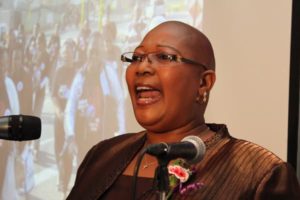 Martha Karombo (photo) Deputy President, who was one of the delegates attending the revised national gender policy launch said she was elated that women can now have what they have been longing for. “We are very happy, and to be recognised is what we want. I hope the policy will be soon implemented. We also want to have equal seats in the parliament and government,” she said. In her speech during the official launch of the policy, Minister of Women Affairs Gender and Community Development, Nyasha Chikwinya said that the goal of the policy is to eradicate gender discrimination and inequalities in all spheres of life and development.
Martha Karombo (photo) Deputy President, who was one of the delegates attending the revised national gender policy launch said she was elated that women can now have what they have been longing for. “We are very happy, and to be recognised is what we want. I hope the policy will be soon implemented. We also want to have equal seats in the parliament and government,” she said. In her speech during the official launch of the policy, Minister of Women Affairs Gender and Community Development, Nyasha Chikwinya said that the goal of the policy is to eradicate gender discrimination and inequalities in all spheres of life and development.

Women in Australia. Australian women GPs now outnumber men in the field of general practice for the first time in Australian history, according to new data from the Medical Board of Australia. There are now 19,965 women versus 18,992 men in the speciality. The only state or territory where men still outnumber women is Queensland (4042 versus 3923). Women are also the major group within medical schools across the country. They now dominate obstetrics and gynaecology traineeships (79.7%), paediatrics (74.9%) and public health medicine (68.8%). But female doctors are far from a dominant force yet. In traditionally male-dominated professions, women account for fewer than one-third of advanced vocational trainees in general surgery, intensive care, and oral and maxillofacial surgery. And they are continuing to hit the glass ceiling when it comes to formal leadership positions. Fewer than 12.5% of hospitals with more than 1000 employees have a female chief executive, only 28% of medical schools have female deans, and 33% of state and federal chief medical or health officers are female. The distinct gender patterns across specialist roles suggest that many of the areas in which women are poorly represented offer limited options for cultivating a work-life balance. Perceived credibility is a further barrier, with women not being taken seriously as leaders or surgeons.
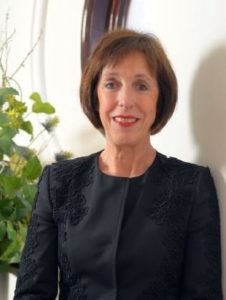 Victoria’s new chief justice is Anne Ferguson (photo) former Victorian Court of Appeal judge and the first solicitor to take this role. She is known as an outstanding litigator and extraordinary mentor, teacher and role model, in particular for junior solicitors. Her appointment will continue the line of strong women holding senior judicial roles in the nation, including High Court chief justice Susan Kiefel and fellow High court judges Virginia Bell and Michelle Gordon, Queensland Supreme Court chief justice Catherine Holmes, NSW Court of Appeal president Margaret Beazley and Justice Ward, and Family Court chief justice Diana Bryant.
Victoria’s new chief justice is Anne Ferguson (photo) former Victorian Court of Appeal judge and the first solicitor to take this role. She is known as an outstanding litigator and extraordinary mentor, teacher and role model, in particular for junior solicitors. Her appointment will continue the line of strong women holding senior judicial roles in the nation, including High Court chief justice Susan Kiefel and fellow High court judges Virginia Bell and Michelle Gordon, Queensland Supreme Court chief justice Catherine Holmes, NSW Court of Appeal president Margaret Beazley and Justice Ward, and Family Court chief justice Diana Bryant.
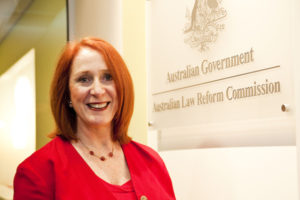 Professor Rosalind Croucher (photo) is the next head of the Australian Human Rights Commission, replacing Professor Gillian Triggs. Rosalind was president of the Australian Law Reform Commission (ALRC), and prior to that had a long and distinguished academic career, including as Dean of Law at Macquarie University from 1999 until 2007. She was Commissioner-in-charge of nine significant law reform inquiries, including Client Legal Privilege, Secrecy Laws, Family Violence, Discovery, Age Barriers, Disability Laws, and the Freedoms Inquiry. One of her last tasks at ALRC was to release its final report into the abuse of older Australians by carers.
Professor Rosalind Croucher (photo) is the next head of the Australian Human Rights Commission, replacing Professor Gillian Triggs. Rosalind was president of the Australian Law Reform Commission (ALRC), and prior to that had a long and distinguished academic career, including as Dean of Law at Macquarie University from 1999 until 2007. She was Commissioner-in-charge of nine significant law reform inquiries, including Client Legal Privilege, Secrecy Laws, Family Violence, Discovery, Age Barriers, Disability Laws, and the Freedoms Inquiry. One of her last tasks at ALRC was to release its final report into the abuse of older Australians by carers.
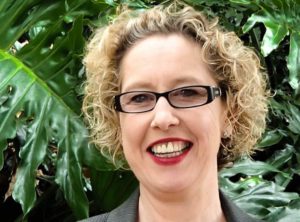 Scouts Australia has appointed its first female National General Manager, Cathy Morcom (photo) after 110 years. The move marks a major shift in the running of Scouts, and signals further change ahead — especially in welcoming more girls into the movement. Cathy has a background in business and change management, and has worked at some of Australia’s largest employers including CBA, NAB, Westpac and KPMG. She started her career with the BBC in Ireland and has an MBA. She told the ABC she hoped to see more girls joining Scouts, who will be inspired to see that women are represented at a senior level. “We’ve had girls in our movement going back to the 1970s, so it’s not a new thing,” she said. The organisations has around 70,000 members and is aiming to hit 100,000 again by 2020. It reached an all-time high of 114,500 in 1979. Scouts has a difficult history: it needs to address the organisation’s failure to recognise early enough the children being abused by its leaders. Cathy is passionate about “bringing to life all of our values, our purpose, our mission and our principles for all our youth members, in an environment that has the right balance of freedom within boundaries, challenge and safety, and empowerment versus accountability.”
Scouts Australia has appointed its first female National General Manager, Cathy Morcom (photo) after 110 years. The move marks a major shift in the running of Scouts, and signals further change ahead — especially in welcoming more girls into the movement. Cathy has a background in business and change management, and has worked at some of Australia’s largest employers including CBA, NAB, Westpac and KPMG. She started her career with the BBC in Ireland and has an MBA. She told the ABC she hoped to see more girls joining Scouts, who will be inspired to see that women are represented at a senior level. “We’ve had girls in our movement going back to the 1970s, so it’s not a new thing,” she said. The organisations has around 70,000 members and is aiming to hit 100,000 again by 2020. It reached an all-time high of 114,500 in 1979. Scouts has a difficult history: it needs to address the organisation’s failure to recognise early enough the children being abused by its leaders. Cathy is passionate about “bringing to life all of our values, our purpose, our mission and our principles for all our youth members, in an environment that has the right balance of freedom within boundaries, challenge and safety, and empowerment versus accountability.”
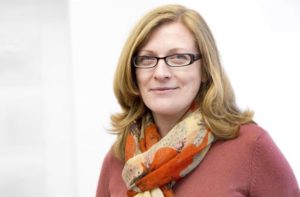 Michelle Higelin (photo) has been appointed Executive Director of ActionAid Australia, one of Australia’s most dynamic global women’s rights organisations, working in more than 45 countries to end the interlinked challenges of poverty and patriarchy. Its approach puts women living in poverty and exclusion at the centre of their programming and campaigning efforts with Michelle driving a strong feminist leadership agenda in both the organisation and the broader development and humanitarian sector: “Feminist leadership is about analysing the power and politics of organisations, and working to transform deep structures that continue to hold women back and uphold the intersecting inequalities of race, disability, sexuality and class. It’s also about how we shift power and resources to the women we work with, and challenge development and humanitarian practice that treats women as passive beneficiaries of projects”. ActionAid is working to ensure women have a strong, collective voice in decisions that affect their lives, and are supported to mobilise with others to address the structural causes of poverty and injustice.
Michelle Higelin (photo) has been appointed Executive Director of ActionAid Australia, one of Australia’s most dynamic global women’s rights organisations, working in more than 45 countries to end the interlinked challenges of poverty and patriarchy. Its approach puts women living in poverty and exclusion at the centre of their programming and campaigning efforts with Michelle driving a strong feminist leadership agenda in both the organisation and the broader development and humanitarian sector: “Feminist leadership is about analysing the power and politics of organisations, and working to transform deep structures that continue to hold women back and uphold the intersecting inequalities of race, disability, sexuality and class. It’s also about how we shift power and resources to the women we work with, and challenge development and humanitarian practice that treats women as passive beneficiaries of projects”. ActionAid is working to ensure women have a strong, collective voice in decisions that affect their lives, and are supported to mobilise with others to address the structural causes of poverty and injustice.
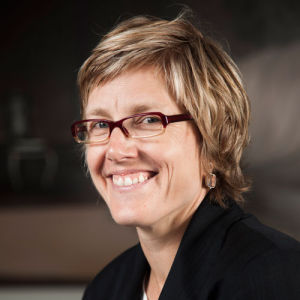 Melinda Cilento (photo) will be the new CEO of the Committee for Economic Development of Australia (CEDA). She has a wealth of experience from both an economic and business background, is currently with the Productivity Commission and holds a number of non-executive roles with Reconciliation Australia, Woodside Petroleum and Australian Unity. She was also previously the Deputy CEO and Chief Economist with the Business Council of Australia.
Melinda Cilento (photo) will be the new CEO of the Committee for Economic Development of Australia (CEDA). She has a wealth of experience from both an economic and business background, is currently with the Productivity Commission and holds a number of non-executive roles with Reconciliation Australia, Woodside Petroleum and Australian Unity. She was also previously the Deputy CEO and Chief Economist with the Business Council of Australia.
The Australia Post board has jumped ahead of other large boards in terms of gender diversity, with a number of appointments at the top seeing it become majority female for the first time. Deputy Chair is Holly Kramer, Deidre Willmott is a new part-time non-executive director, and Christine Holgate is the organisation’s first female CEO. The appointments will see five women serving on the nine-person board, and that puts it well ahead of other major boards, particularly in business (although government boards are faring significantly better). Just over one in four board positions at ASX 200 organisations are held be women, and there are currently 13 boards across the ASX 200 that still do not have a single woman represented, and numerous more female-free zones across all ASX listed entities. Disappointingly, the Australian Institute of Company Directors also recently found that the rate of female appointments has slowed significantly in 2017, at just 30% across ASX 200 boards, compared with 44% in 2016.
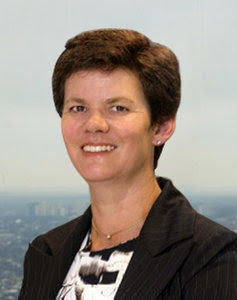 Alison Kitchen (photo) has been elected by the KPMG partnership to be the first woman to chair a ‘big four’ professional services firm, KPMG Australia. The ‘Big 4’ accounting firms include KPMG, PricewaterhouseCoopers (PwC), Deloitte and Ernst & Young (EY). They are typically still dominated by men at the partnership level, with the Australian Financial Review revealing late last year that the proportion of female partners is between 17% (PwC) and 24% (Deloitte). Cassandra Kelly and Helen Thornton have been appointed Chair and Deputy Chair of the Treasury Corporation of Victoria (TCV). Cassandra is the co-founder and chair of corporate advisory Pottinger, and an expert advisor to the G20/B20 on areas including digitalisation, health, infrastructure and finance. Based in New York, she is on the leadership council of MS Research Australia, is a director of The Resolution Project in the US, and a member of the Federal Government’s Treasury Inclusive Workplace Committee. She is also a co-founder of The Glass Elevator, an organisation supporting the advancement of women that’s financially supported by Pottinger. The Victorian Government has indicated Cassandra will personally meet the costs of her travel to and from board meetings.
Alison Kitchen (photo) has been elected by the KPMG partnership to be the first woman to chair a ‘big four’ professional services firm, KPMG Australia. The ‘Big 4’ accounting firms include KPMG, PricewaterhouseCoopers (PwC), Deloitte and Ernst & Young (EY). They are typically still dominated by men at the partnership level, with the Australian Financial Review revealing late last year that the proportion of female partners is between 17% (PwC) and 24% (Deloitte). Cassandra Kelly and Helen Thornton have been appointed Chair and Deputy Chair of the Treasury Corporation of Victoria (TCV). Cassandra is the co-founder and chair of corporate advisory Pottinger, and an expert advisor to the G20/B20 on areas including digitalisation, health, infrastructure and finance. Based in New York, she is on the leadership council of MS Research Australia, is a director of The Resolution Project in the US, and a member of the Federal Government’s Treasury Inclusive Workplace Committee. She is also a co-founder of The Glass Elevator, an organisation supporting the advancement of women that’s financially supported by Pottinger. The Victorian Government has indicated Cassandra will personally meet the costs of her travel to and from board meetings.
Women in Sport.
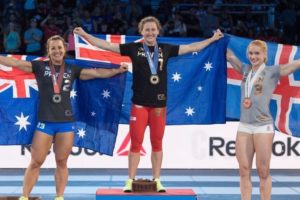 Central Queensland athlete Tia-Clair Toomey (photo) has been crowned the fittest woman on Earth after winning the world CrossFit Games at Madison, Wisconsin. Toomey made her Olympic debut at the Rio Games last year, stepping onto the weightlifting podium just 10 days after competing at the 2016 CrossFit Games. Her sporting dreams began as a young track and field athlete growing up on a cane farm on Queensland’s Sunshine Coast. Throughout the four-day CrossFit Games, Toomey demonstrated her physical prowess in various disciplines, winning two of the 13 events. The first was a run-swim-run where she finished first out of the women and in front of all male competitors except one.
Central Queensland athlete Tia-Clair Toomey (photo) has been crowned the fittest woman on Earth after winning the world CrossFit Games at Madison, Wisconsin. Toomey made her Olympic debut at the Rio Games last year, stepping onto the weightlifting podium just 10 days after competing at the 2016 CrossFit Games. Her sporting dreams began as a young track and field athlete growing up on a cane farm on Queensland’s Sunshine Coast. Throughout the four-day CrossFit Games, Toomey demonstrated her physical prowess in various disciplines, winning two of the 13 events. The first was a run-swim-run where she finished first out of the women and in front of all male competitors except one.
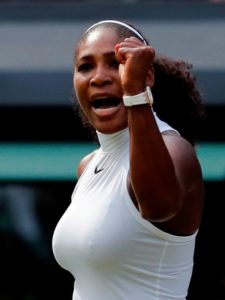
Equal pay for women in sport. Serena Williams (photo) has once again spoken out as an advocate for gender equality and black women’s rights by a moving essay published in Fortunet. In honour of Black Women’s Equal Pay Day she acknowledged the very real struggles still faced by many African-American women who earn on average 37 cents less on the dollar than their white male counterparts. The stark statistics aren’t solely based on education or socio-economics: “even black women who have earned graduate degrees get paid less at every level. This is as true in inner cities as it is in Silicon Valley.” For Williams, changing the status quo is dependent on widespread recognition of the issue at hand. “It will take dedicated action, legislation, employer recognition, and courage for employees to demand more…In short, it’s going to take all of us. Men, women, of all colours, races and creeds to realise this is an injustice. And an injustice to one is an injustice to all.” More than anything, Williams notes that change requires the broad determination to do better. The will to ensure that all men and women, all groups in society, are “compensated equally. Not close. Not almost the same. Equally.”
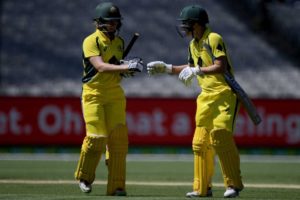
Cricket. The biggest pay rise in the history of women’s sport in Australia is the outcome of a Memorandum of Understanding (MOU) being negotiated between male and female cricketers and Cricket Australia (CA) after months of bitter dispute. For the first time the MOU includes all contracted international and state men’s and women’s players under a gender equity payment model. Significant increases in payments will be made to all players, male and female at international and domestic level. The photo shows the two captains, Alex Blackwell and Elyse Villani congratulating each other. Greater investment will be made in grassroots programs and facilities with the players to provide up to $25 million which CA will match through savings to their administrative costs over the next five years. Payments to women players will rise from the previous total of $7.5m to $55.2m, an increase that was welcomed by both parties. Total female participation in cricket in Australia has grown to nearly 400,000, an increase of 25% from the previous year. The South Australian Cricket Association has increased investment form $75k to $195k to fund 23 clubs and 35 schools to play in the girls’ league.
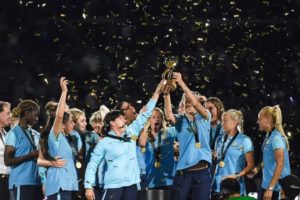 Soccer. The Australian national women’s soccer team claimed its first trophy in seven years by winning the Tournament of Nations in Carson, USA. Matildas record-breaker Lisa De Vanna overtook Kate Gill to become the Matilda’s all-time leading goalscorer. The team beat the three best teams in the world – Brazil (6-1), United States and Japan. Their undefeated run through the tournament has set them up for an assault on the World Cup in France in 2019. The Australian women’s soccer team is ranked 8th in the world, while the men’s team is ranked 50th in the world. And yet women’s sport gets less than a third of the financial sponsorship and media attention men’s sport gets.
Soccer. The Australian national women’s soccer team claimed its first trophy in seven years by winning the Tournament of Nations in Carson, USA. Matildas record-breaker Lisa De Vanna overtook Kate Gill to become the Matilda’s all-time leading goalscorer. The team beat the three best teams in the world – Brazil (6-1), United States and Japan. Their undefeated run through the tournament has set them up for an assault on the World Cup in France in 2019. The Australian women’s soccer team is ranked 8th in the world, while the men’s team is ranked 50th in the world. And yet women’s sport gets less than a third of the financial sponsorship and media attention men’s sport gets.
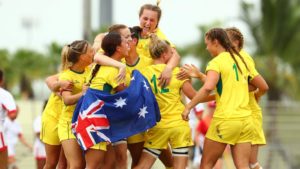 Rugby. Hosted by Georgia, the World Rugby U20 Championship 2017 saw its participating teams and the World Rugby Organisation declare their support for HeForShe – the UN Women solidarity movement for gender equality. The Georgian Rugby Union was one of the first supporters of HeForShe in Georgia. Georgian rugby players met with 500 children in 19 villages and spoke to them about equality between girls and boys, women and men, and about the importance of non-violent behaviour. Gocha Svanidze, President of the Rugby Union said, “We, the rugby players, are not just supporters of this campaign. It is a lifestyle that we will always have.” The Australian Youth Rugby 7s won gold in the Bahamas (photo) and the Australian Women’s Wallaroos have started off well in the 2017 World Rugby Cup, hoping to match their Rugby 7s performance at the Olympics.
Rugby. Hosted by Georgia, the World Rugby U20 Championship 2017 saw its participating teams and the World Rugby Organisation declare their support for HeForShe – the UN Women solidarity movement for gender equality. The Georgian Rugby Union was one of the first supporters of HeForShe in Georgia. Georgian rugby players met with 500 children in 19 villages and spoke to them about equality between girls and boys, women and men, and about the importance of non-violent behaviour. Gocha Svanidze, President of the Rugby Union said, “We, the rugby players, are not just supporters of this campaign. It is a lifestyle that we will always have.” The Australian Youth Rugby 7s won gold in the Bahamas (photo) and the Australian Women’s Wallaroos have started off well in the 2017 World Rugby Cup, hoping to match their Rugby 7s performance at the Olympics.
 Football. Up to six Australian Football League clubs could field women’s teams by 2017, as part of the AFL’s major push to boost elite women’s football. The eventual formation of an elite women’s competition would bring the sport up to speed with soccer and cricket, both having established women’s leagues. Female football participation has tripled over the last five years, now accounting for 19% of participants. Women have for decades made up roughly half of the game’s audience in crowds and as television viewers and membership. But women have not been promoted or always supported to the code’s highest circles of influence. For the first time in AFL broadcast history, there is a 50-50 gender split within the commentating team (Lauren Arnell, Kelli Underwood, Nathan Burke and Alister Nicholson – photo) and there are more female managers, umpires and coaches. In Victoria, the surge of interest in the game among young women is causing one of the most substantial upheavals in the game’s history at amateur level. Having registered 150 new women’s teams in 2016, AFL Victoria will add around 320 more after the professional league’s inaugural season.
Football. Up to six Australian Football League clubs could field women’s teams by 2017, as part of the AFL’s major push to boost elite women’s football. The eventual formation of an elite women’s competition would bring the sport up to speed with soccer and cricket, both having established women’s leagues. Female football participation has tripled over the last five years, now accounting for 19% of participants. Women have for decades made up roughly half of the game’s audience in crowds and as television viewers and membership. But women have not been promoted or always supported to the code’s highest circles of influence. For the first time in AFL broadcast history, there is a 50-50 gender split within the commentating team (Lauren Arnell, Kelli Underwood, Nathan Burke and Alister Nicholson – photo) and there are more female managers, umpires and coaches. In Victoria, the surge of interest in the game among young women is causing one of the most substantial upheavals in the game’s history at amateur level. Having registered 150 new women’s teams in 2016, AFL Victoria will add around 320 more after the professional league’s inaugural season.
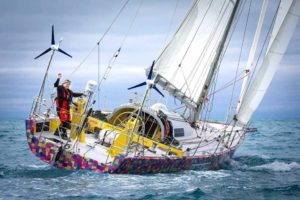 Sailing. Lisa Blair has arrived back in Albany after completing a solo full-circumnavigation of Antarctica, the first woman to do so, putting women sailors on the map. Lisa crossed all tracks below 45 degrees solo and unassisted, with one stop. Since she began sailing in 2005 she has noticed the impact that man-made climate change has had on our environment. To draw attention to this Lisa renamed her yacht Climate Action Now (photo), not only to focus on the problem, but also on actions we can all take as individuals to finding a solution.
Sailing. Lisa Blair has arrived back in Albany after completing a solo full-circumnavigation of Antarctica, the first woman to do so, putting women sailors on the map. Lisa crossed all tracks below 45 degrees solo and unassisted, with one stop. Since she began sailing in 2005 she has noticed the impact that man-made climate change has had on our environment. To draw attention to this Lisa renamed her yacht Climate Action Now (photo), not only to focus on the problem, but also on actions we can all take as individuals to finding a solution.
Rowing. Australia concluded its European season by winning five medals at the World Rowing Cup 3 in Lucerne, Switzerland. Australia’s Lightweight Women’s Quadruple Scull won gold and its Women’s Four won its second World Rowing Cup gold medal of the season. The Men’s Eight (Andrew’s crew – photo) and Coxed Pair claimed silver medals and the Women’s Quadruple Scull a bronze medal. Australia finished the regatta placing second on the medal table, alongside Poland and Italy. The team has return to Australia to finalise its selections and preparations for the 2017 World Rowing Championships in Sarasota, USA in September this year. Ellen’s Double Scull won a bronze at the World Rowing Cup 2 and she stayed on in Europe for the Under 23 World Championships where her Women’s Quadruple Scull also won a silver medal. This has been a great start for the Australian rowers and the coaches who work as a team, while they have their eyes set on Tokyo 2020.
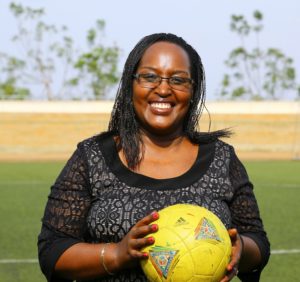 Forum for Advancing Women in Leadership for Africa and Asia. The latest International Olympic Committees (IOC) forum has been held in Kigali Rwanda, chosen because it has been a world leader in having the highest number of women in parliament (64%). The Forum brought together over 251 women and men sportspersons from 71 countries across Africa and Asia. The Forum issued ‘The Kigali Key to Success’ to empower women leaders who are involved with various sports federations in their respective countries. IOC commended Rwanda for promoting the participation of women in sports since 2012 when the Rwanda National Olympic and Sports Committee (RNOSC) executive committee was instituted comprising 30% women – now 43%. IOC also acknowledged that Rwanda has increased the number of women coaches, female international referees, and Confederation of African Football women instructors as well as the participation of women in the Olympic Games. As a result of this, in 2016 the IOC Women and Sports Trophy for Africa was awarded to my longstanding friend Félicité Rwemalika (photo) the current first Vice President of RNOSC as well as the head of women’s football in Rwanda. Sport has played a central role in Rwanda’s reconciliation efforts following the 1994 Genocide against the Tutsi. It has also helped advance other national causes such as the fight against HIV/Aids, domestic violence, and poverty.
Forum for Advancing Women in Leadership for Africa and Asia. The latest International Olympic Committees (IOC) forum has been held in Kigali Rwanda, chosen because it has been a world leader in having the highest number of women in parliament (64%). The Forum brought together over 251 women and men sportspersons from 71 countries across Africa and Asia. The Forum issued ‘The Kigali Key to Success’ to empower women leaders who are involved with various sports federations in their respective countries. IOC commended Rwanda for promoting the participation of women in sports since 2012 when the Rwanda National Olympic and Sports Committee (RNOSC) executive committee was instituted comprising 30% women – now 43%. IOC also acknowledged that Rwanda has increased the number of women coaches, female international referees, and Confederation of African Football women instructors as well as the participation of women in the Olympic Games. As a result of this, in 2016 the IOC Women and Sports Trophy for Africa was awarded to my longstanding friend Félicité Rwemalika (photo) the current first Vice President of RNOSC as well as the head of women’s football in Rwanda. Sport has played a central role in Rwanda’s reconciliation efforts following the 1994 Genocide against the Tutsi. It has also helped advance other national causes such as the fight against HIV/Aids, domestic violence, and poverty.
Hon Paul Kagame, a constant advocate for women’s empowerment, has been reelected President of Rwanda with an overwhelming vote of 98%. Electoral observers issued a positive report on the smooth and peaceful electoral process. The President launched the Giants of Africa newly refurbished basketball facilities at Club Rafiki on 8 August (photo). I chair the development committee of indigo foundation which provides funding for Club Rafiki and we are delighted that both girls and boys will benefit from the new facilities.
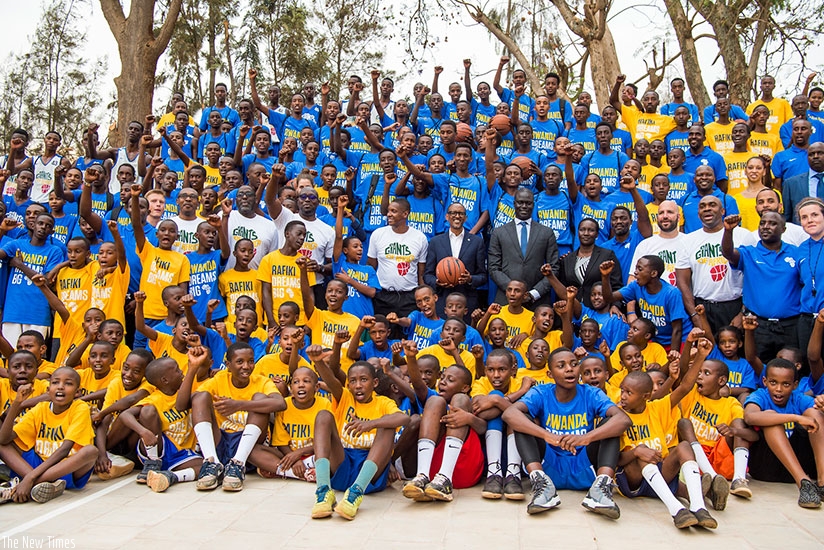
I have been asked by the Inter-Parliamentary Union to support the work of Tanzanian women parliamentarians through the development of a mentoring program and hope to visit Rwanda while in East Africa. Another exciting challenge is to deliver seminars in October to a group of 15 senior public servants from Kenya who will be participating in a University of Newcastle project, funded by the Department of Foreign Affairs and Trade. Beforehand I will be travelling to Perth for the 60th anniversary of our secondary school cohort (1953-57) at Perth Modern School and to catch up with WA siblings, nieces and nephews. Life is full and rich for me as I visit children and grandchildren in Sydney, Canberra and Melbourne, and I experience summer days during winter.
Every blessing of peace and justice
Shirley
The Summer Day
Who made the world?
Who made the swan, and the black bear?
Who made the grasshopper?
This grasshopper, I mean –
the one who has flung herself out of the grass,
the one who is eating sugar out of my hand,
who is moving her jaws back and forth instead of up and down –
who is gazing around with her enormous and complicated eyes.
Now she lifts her pale forearms and thoroughly washes her face.
Now she snaps her wings open, and floats away.
I don’t know exactly what a prayer is.
I do know how to pay attention, how to fall down
into the grass, how to kneel down in the grass,
how to be idle and blessed, how to stroll through the fields,
which is what I have been doing all day.
Tell me, what else should I have done?
Doesn’t everything die at last, and too soon?
Tell me, what is it you plan to do
with your one wild and precious life?
– Mary Oliver
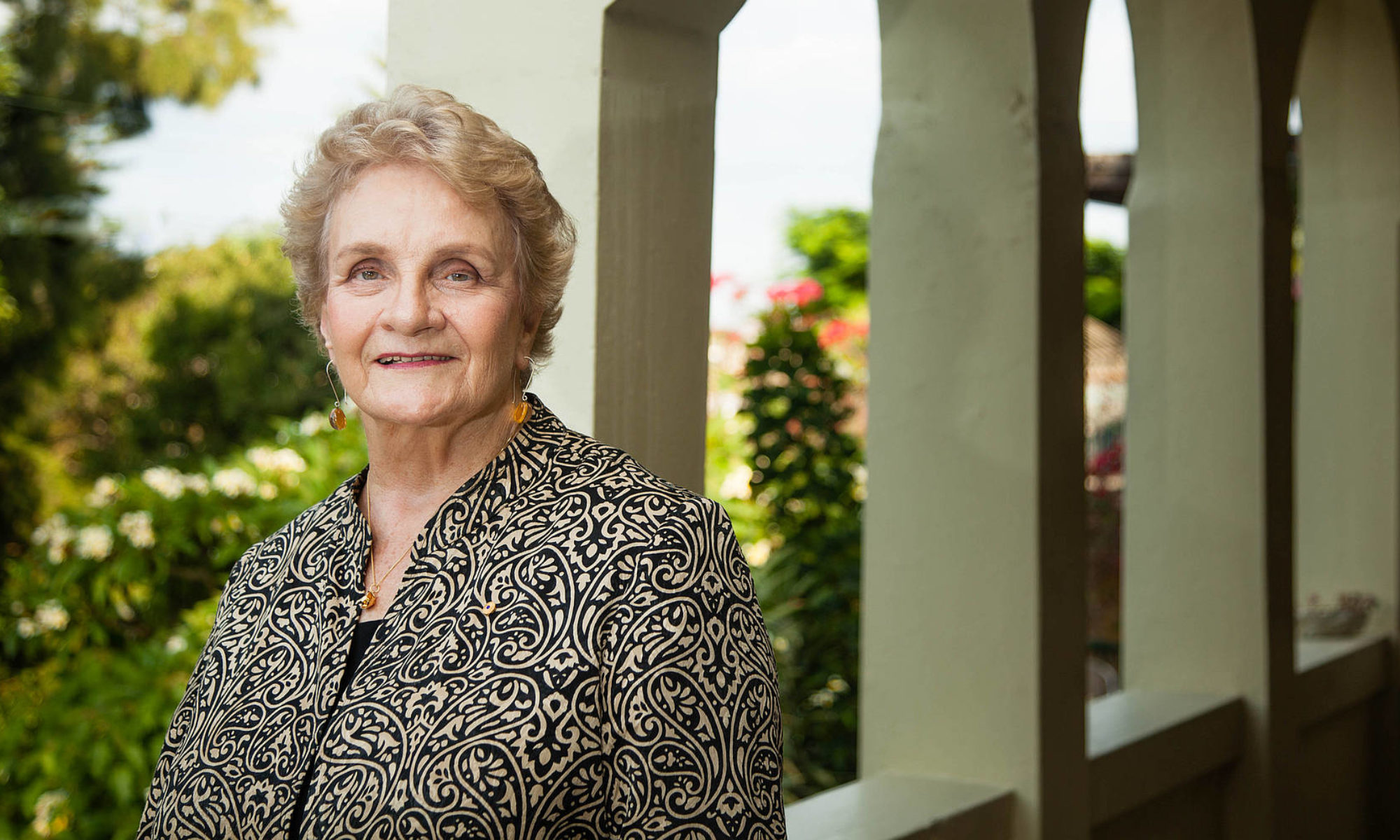
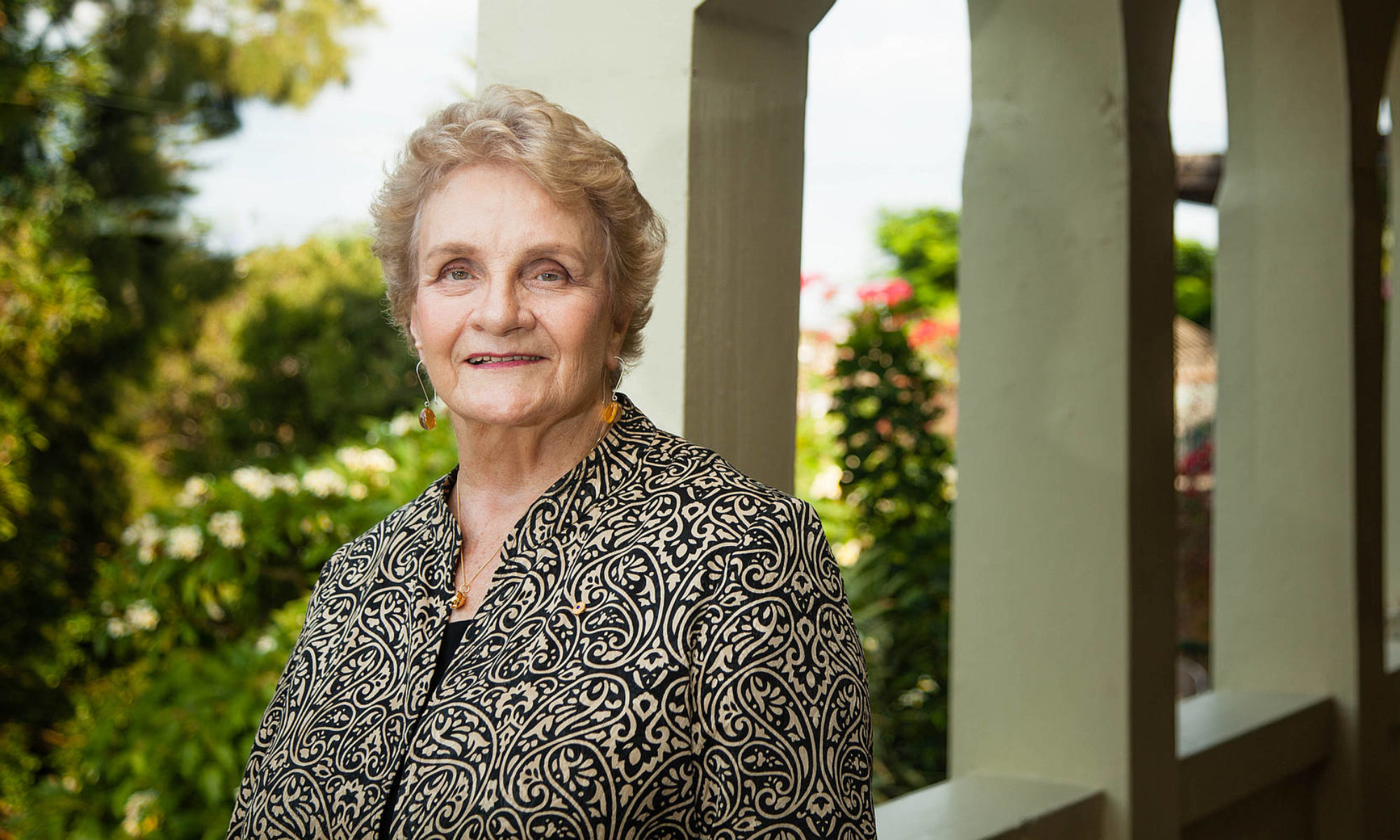
Dear Shirley, thank you for the update and give us an opportunity for visiting some corners of the world through this brilliant initiative like this (newsletter)
We will be happy to see you again at home of younger people Club Rafiki
Thanks our beloved maman
Omar Tony – Club Rafiki
Hi Shirley,
Thanks for another outstanding newsletter! I will share it with our members here in Montreal.
I was wondering why there is no picture of Fatima Ahmed Ibrahim under the «Bereavements» section.
Insightful as always and challenging. Thank you.
Shirley your newsletters are always an inspiration and a delight to read. Our paths crossed briefly in 2010 in Rwanda and ever since you have inspired me, thank you.